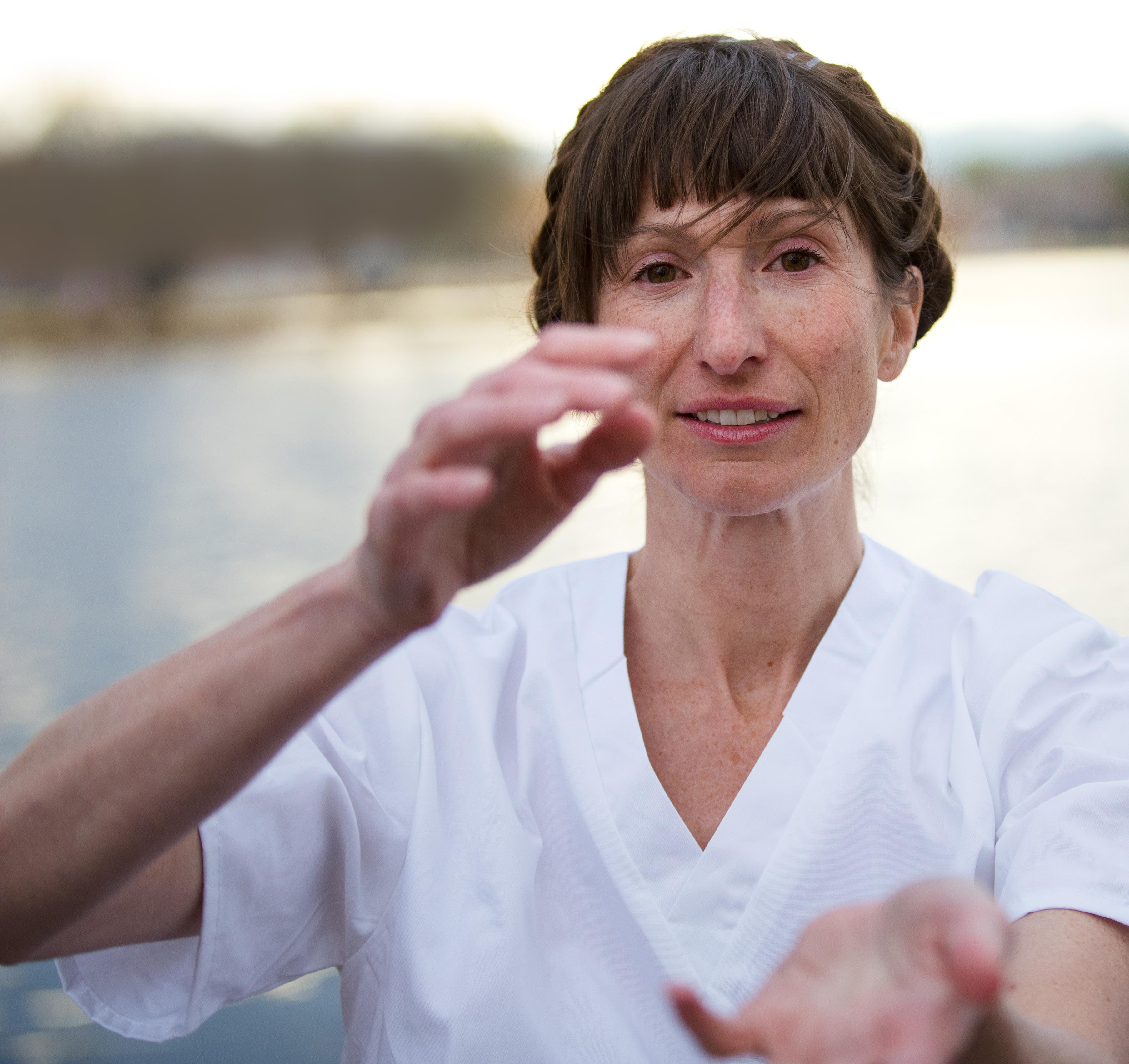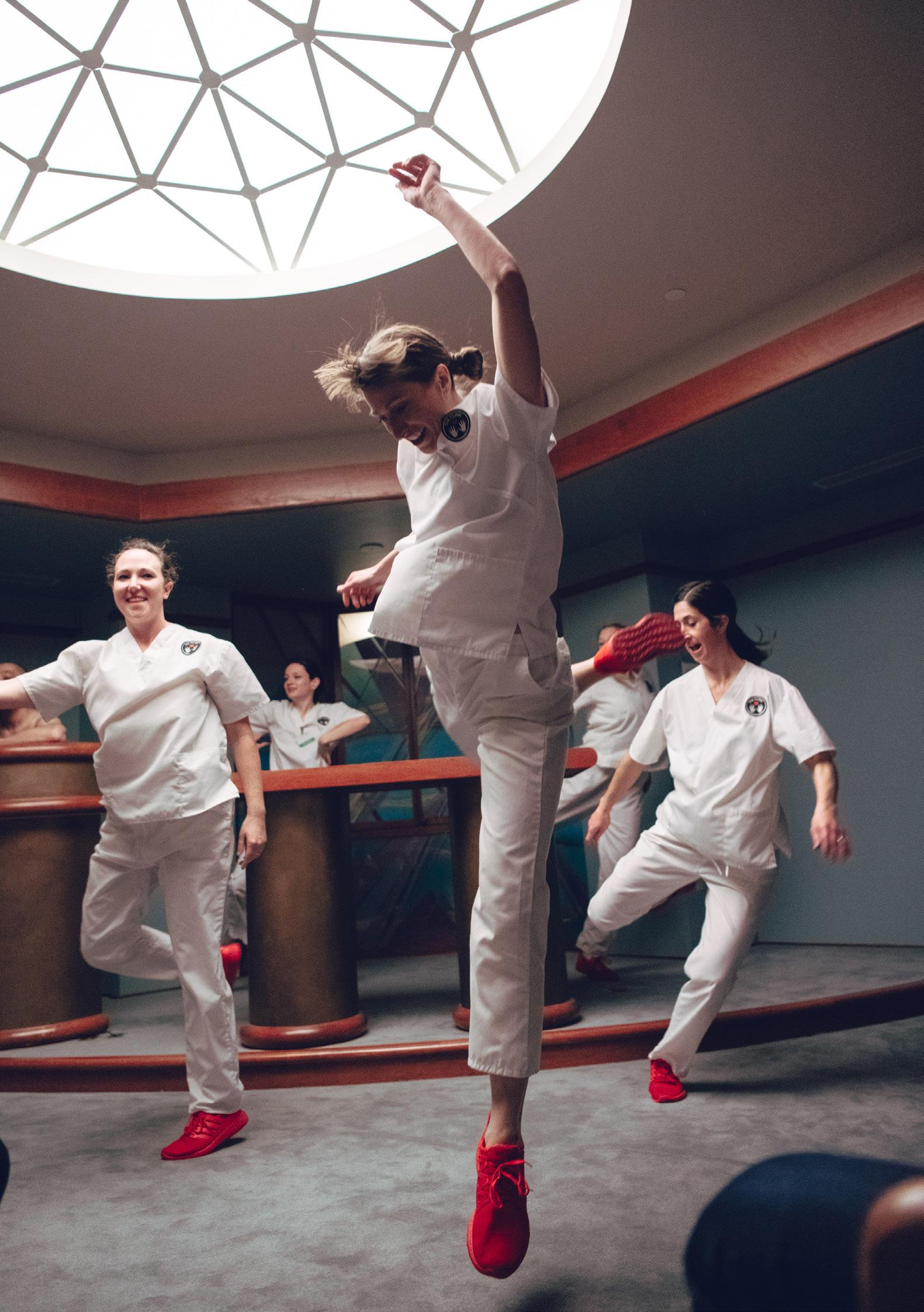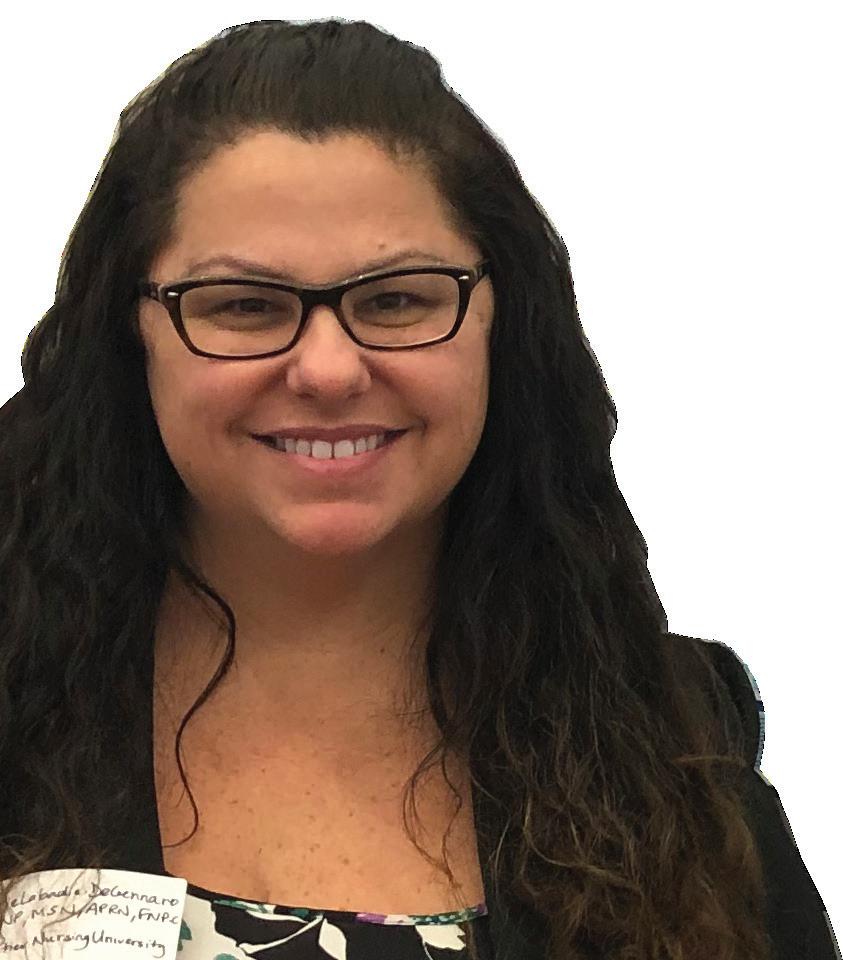
5 minute read
Treating Burnout, Trauma, and Grief with Dance After Dealing with Her Tragedies, a Nurse Learned How to Help Other Nurses Process Theirs
By Michele Wojciechowski
Tara Rynders, RN, MFA, BSN, BA, admits she hasn’t had the easiest life. From when she was a child, though, she would heal from it through dance. In fact, she wanted to be a professional dancer before she thought about being a nurse.
“My earliest memory is of holding a neighborhood performance in my backyard—and it’s a lifeline that I’ve held on to through all of life’s highs and lows,” Rynders explains.
So Rynders graduated high school and headed to Hollywood. But she soon realized that the business was more focused on outward appearance rather than the inward healing dance provided.
“After my time in Hollywood, I realized that I wanted to be able to offer both emotional and physical healing. Nursing allowed me the entry point into that space. It’s a profession that offers flexibility to keep connected to my lifeline—dancing,” she says.
Trauma Hits Home Rynders came to embrace dance and bring it into the world of nursing after her tough times. She cared for her mother until she passed. Rynders says that losing her mother made her entire world fall apart. At the time, she was working as a nurse but decided to reach out again to what had always helped—dance. So, she cut down her nursing hours to earn a master’s degree in dance.
Her sister became ill during that time and went into a coma for months. Rynders took off a semester and went to live with her in rehab until she was transferred from California to Colorado, where Rynders was living.
“In my sister’s hospital room, my dance and nursing worlds began to collide,” recalls Rynders. “Every night, I would dance to Miley Cyrus’s ‘Party in the USA.’ And I discovered that although my sister couldn’t speak, she could laugh. That became my goal—to make her laugh.”
When Rynders returned to school, she created an immersive theater performance called You & Me that was connected to her experience as her sister’s caretaker and her work as a charge nurse in the ER.
The show You & Me traveled nationally and internationally to more than five countries.
“What I realized when I cared for my sister was the gift that comes from having one-on-one intimate moments with another human being—to bathe her, feed her, and help be her voice,” says Rynders. “During the day, I would hold the suffering and loss with my sister, and at night we would hold the joy as I danced. It felt like I had both my joy and my grief coupled together in all that I did.”
One more scary experience brought Rynders to where she is today. When her twins were six months old, she learned she was pregnant again. But this time, it was an ectopic pregnancy.
“When I arrived at the hospital, things moved quickly. I remember the ER tech rolling me on the bed with too much force to start my IV; the ER physician and his caring face took extra time to see and listen to me. I remember feeling his compassion for my situation. I remember being transferred to a room when my fallopian tube burst and my abdomen began to distend with blood,” says Rynders.
“They called a code yellow— the code they call before a code blue when your heart stops. My room was full of people,” she says. “I passed out, but I could still hear everything being said. I felt my nurse grab my hand. She leaned into my ear and said, ‘I am here, and you will be okay.’ I remember thanking her for remembering me because I was so scared and couldn’t speak.”
This experience caused Rynders to have an epiphany. “I realized that nurses are everything to their patients–their voices, their advocates, their support, their healing hands. I experienced this firsthand as a patient and realized how many opportunities I was missing as a nurse to connect and see my patients authentically. I became passionate about this in my practice as a nurse and began researching authentic connection in nursing,” she says. “Everything pointed to one thing: our nurses are tired, overworked, and our healthcare systems are not set up for them to thrive and successfully care for patients.”
Rynders decided she was going to change that.
Bringing Dance to the Nurses
Pre-COVID, Rynders says that nursing leadership was downplaying nurses burnout. And in 2017, nurses weren’t ready to talk about it openly.
But the CNO and CEO where she worked approved her creating a two-hour immersive theater experience at the hospital to raise awareness of compassion fatigue and burnout. She created the performance with artists Jadd Tank and
Lia Bonfilio and worked with playwright Edith Weiss.
“The 2-hour performance took place in the hospital and was open to the general public. The nurses, doctors, and other healthcare personnel testimonials were breathtaking. Most along the lines of ‘Thank you for giving us a language to understand the unrelenting grief and trauma we have been carrying with us,’” says Rynders.
After raising awareness about burnout, Rynders co-created, with Dr. Clare Hammoor, a six-week grief and trauma workshop series. The nurses connected with it so much that they began having monthly meetings post-workshop, which continued until COVID.
“At the height of COVID, my CEO asked me if I would come off the floor and focus on caring for our nurses as they cared for our COVID patients. This told me he also saw that our staff would need ongoing support,” says Rynders. The position was temporary, though; she would eventually work as a clinical nurse educator at another health care system.
Today, Rynders is also an advanced grief recovery specialist and a RESTORE (Resiliency and Equity Support and Training for Organizational Renewal) peer responder who is on call for health care personnel when they need immediate support.
“I help teach resilience, equity, and anti-racism courses for our entire system. I do this alongside my position as executive director of The Clinic Performance. I see both of these roles mutually honoring each other as I bring my whole self into all my experiences,” she says. “We dance in the hospital at our meetings, and having a pulse on nursing in the hospital setting is vital to creating workshops that tend to our nurses—meeting them where they are emotionally.”

Dance Workshops
Rynders workshops touched many people and were so effective that Kaiser Permanente asked her to bring them to nurses across California. These six eight-hour workshops with up to 600 nurses began in April and will run through September.
“Our workshops are now titled (Re)Brilliancy, a play on the word resiliency. I was tired of hearing everyone tell us to be more resilient during the pandemic. Nurses are some of the most resilient humans I know. We need resilient systems that reflect the brilliant and resilient humans we already are. (Re)Brilliancy workshops help us reflect on and honor the brilliant and resilient humans we already are,” says Rynders.
Until they experience the workshops, nurses often don’t even realize that their stories or experiences have continued to both of them.
Rynders knows that her workshops are keeping nurses from leaving the profession.
“I have seen firsthand nurses ready to leave—completely burned out and done with the profession. [They’ve] attended our workshops on an ongoing basis and have a rekindled joy and fervor for caring for themselves and their patients,” she says.
But more needs to be done.
“Nurses go into this field to make a difference in the lives of others. At some point, we begin sacrificing ourselves to do this. We don’t have to sacrifice our mental well-being. These workshops help us disentangle our worth and identity as caregivers from being directly related to how much we can sacrifice our well-being. Our workshops help remind us what we love, what we are passionate about, and what we need to feel seen, heard, and cared for,” says Rynders.
“If healthcare systems want to retain their nurses, they need to start thinking creatively and bringing in non-traditional and innovative ways to care for their teams. Wellness must be embedded as a cornerstone that everything else builds upon.”
Michele Wojciechowski is a national award-winning freelance writer based in Baltimore, Maryland. She loves writing about nursing but comes close to fainting when she sees blood. She’s also the author of the humor book, Next Time I Move, They’ll Carry Me Out in a Box









